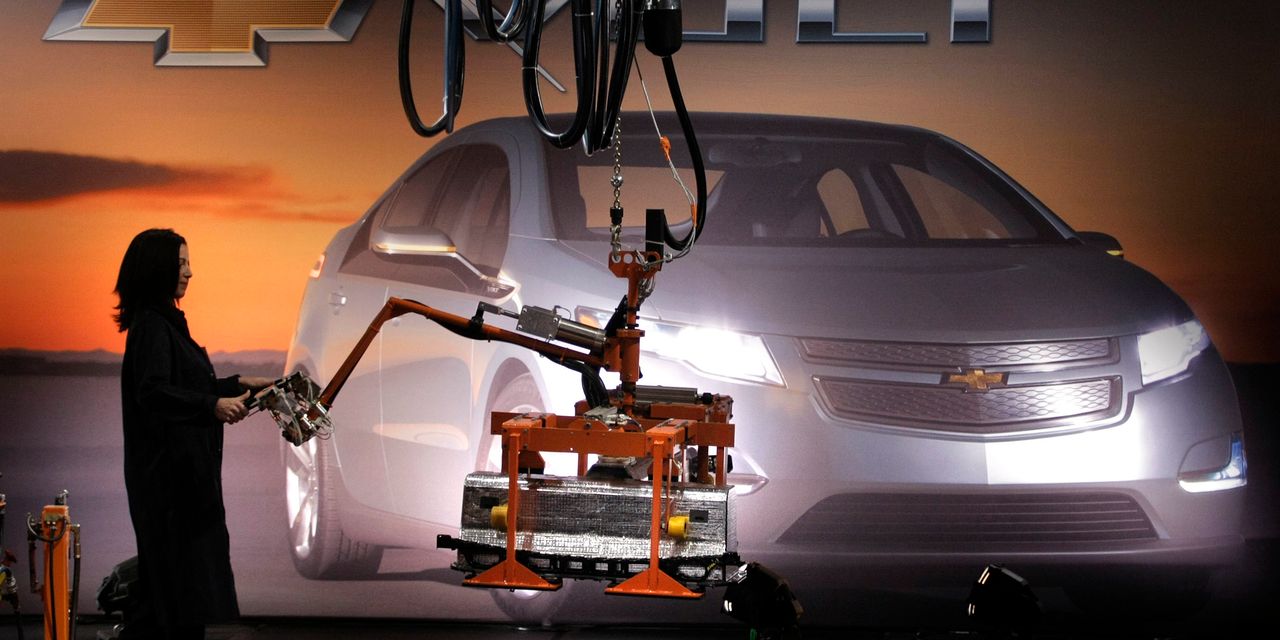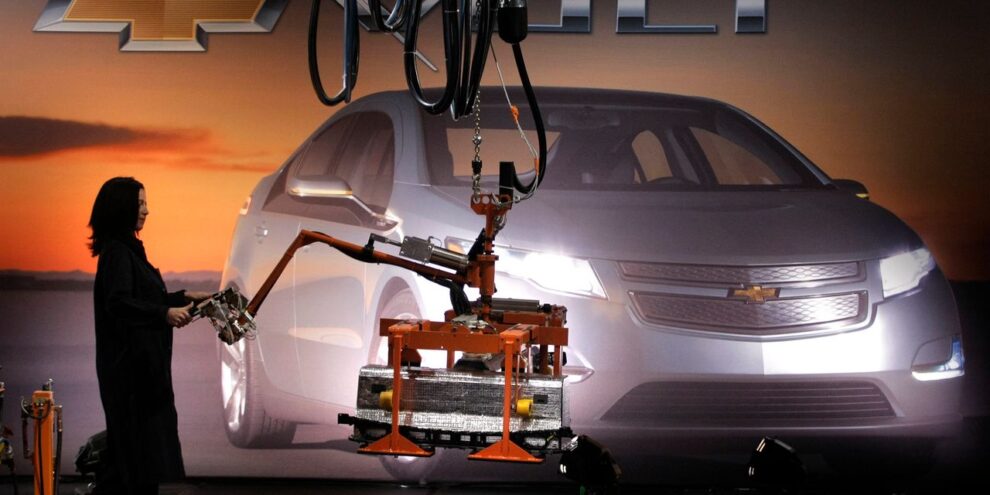
It’s not just bridges and roads that are about to get an injection of federal support. The Infrastructure Investment and Jobs Act includes key recycling-related provisions aimed at keeping plastic out of oceans and reusing batteries, including from the greater numbers of electric vehicles expected to take to the roads.
Environmental groups welcomed the renewed attention, but some recycling experts warned there remains a gap between the federal vision and how local communities can carry out their recycling programs.
Read: Recycling is confusing — how to be smarter about all that takeout plastic
The roughly $1 trillion infrastructure bill, signed Monday by President Joe Biden, included the RECYCLE Act, which earmarks $75 million for recycling education. This new initiative utilizes Environmental Protection Agency resources to educate households and consumers about residential and community recycling programs, decreasing contamination in the recycling stream and supporting recycling infrastructure.
The bill also included is $275 million in grant funding for Save Our Seas 2.0, an extension of the only significant recycling-related bill to pass last year, proponents said. That bill called for infrastructure updates and other measures to keep plastics out of waterways.
Another $200 million will help the National Oceanic and Atmospheric Administration’s Marine Debris Program, which at least one ocean group called the “tip of the spear” for the U.S. government in confronting the ocean plastic waste problem, both at home and abroad.
“Fortunately, steps are being taken in the halls of power to improve recycling and mitigate the more than 11 million metric tons of plastic pollution entering our ocean every year,” said Nick Mallos, senior director of Ocean Conservancy’s Trash Free Seas program.
And $100 million in grants through the EPA are designed to help businesses adopt and improve pollution prevention and reduction practices.
Battery recycling funding is also included in the infrastructure bill.
The legislation provides $7.5 billion to help set up a national EV charging system and $5 billion for electric school buses. It also contains $6 billion for battery material processing grants and battery manufacturing and recycling grants.
“Supporters see the inclusions as a clear sign recycling is being taken more seriously as essential infrastructure after months of calling on the Biden administration to include the industry in the broader national conversation,” writes Megan Quinn, in Waste Dive, a recycling industry newsletter.
“Investing in better recycling infrastructure can be expensive, and proponents see federal funding as one way to clear the cost-related hurdles to improving recycling in the United States,” she said.
For its part, the Plastics Industry Association says it has ramped up efforts that include better recording of the amount of wasted recyclable plastic material and teaching companies that there is a viable business model to collect and recycle plastic, including from offices and hospitals, and return them to the supply chain.
But most recycling advocates argue that a much larger shift in use is needed to keep waste out of landfills and clogging waterways. NPR and PBS Frontline late last year reported on a months-long internal industry investigation on recycling and the plastics industry. The industry’s awareness that recycling wouldn’t keep plastic out of landfills and the environment dates to the program’s earliest days, they found.
“There is serious doubt that [recycling plastic] can ever be made viable on an economic basis,” one industry insider wrote in a 1974 speech. Yet the industry spent millions telling people to recycle, because, as one former top industry insider told NPR, selling recycling sold plastic, even if it wasn’t true.
All used plastic can be turned into new things, but picking it up, sorting it and melting it down is expensive. Plastic also degrades each time it is reused, meaning it can’t be reused more than once or twice.
On the other hand, new plastic is cheap. It’s made from oil CL00, +0.03% and gas, and it’s almost always less expensive and more versatile to start fresh.
On Monday, the EPA released what it is calling the 2021 National Recycling Strategy “to tackle major recycling challenges facing the nation and to create a stronger, more resilient, and cost-effective municipal solid waste recycling system.”
The 2021 strategy is the first time EPA’s recycling strategy will address the climate impacts of producing, using and disposing of materials and focus on the human health and environmental impacts of waste and waste-related facilities in overburdened communities, it said in a release.
“Our nation’s recycling system is in need of critical improvements to better serve the American people,” said EPA Administrator Michael Regan. “As we move forward with this strategy, EPA is committed to ensuring that historically underserved and overburdened communities share in the benefits that our work will deliver.”
Dylan de Thomas, vice president of external affairs at The Recycling Partnership, said recyclers are eagerly thinking of how best to spend the [EPA] grant funding, but he worried it could be “years, not weeks or months” before those dollars are released to eligible recipients.
“It’s very exciting to see those types of dollars coming from the federal government for support for recycling programs, but they’re really just a drop in a bucket, and [implementation] still is definitely far away,” he said during a panel discussion at the National Recycling Congress earlier this month.






